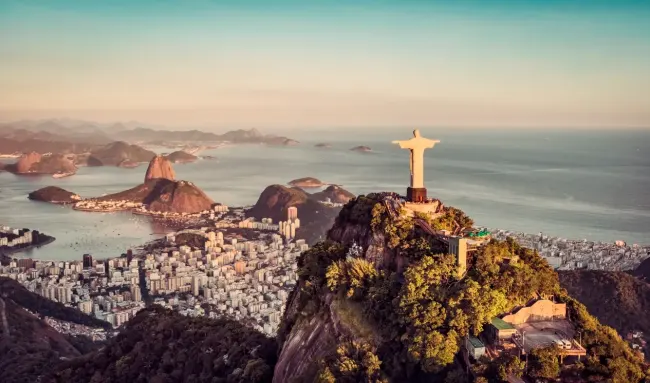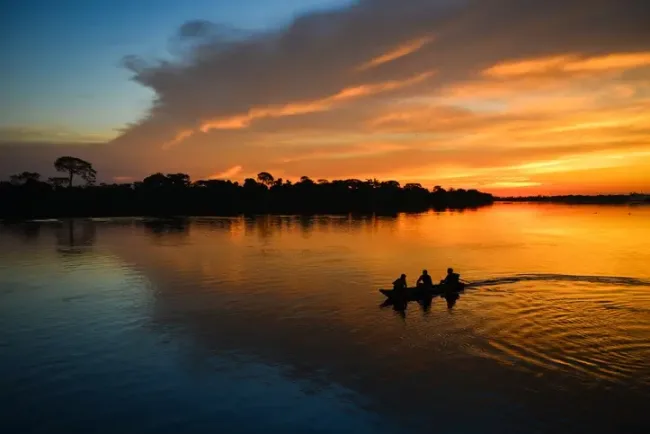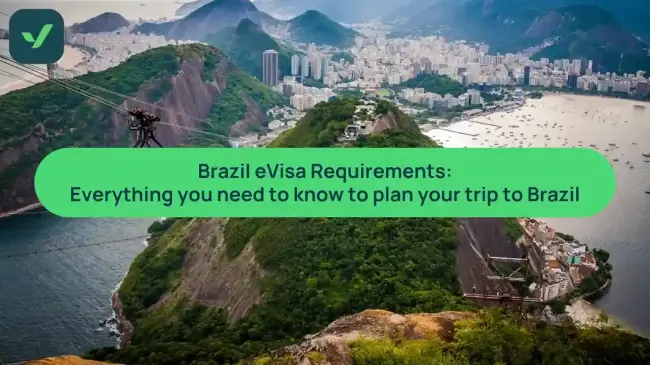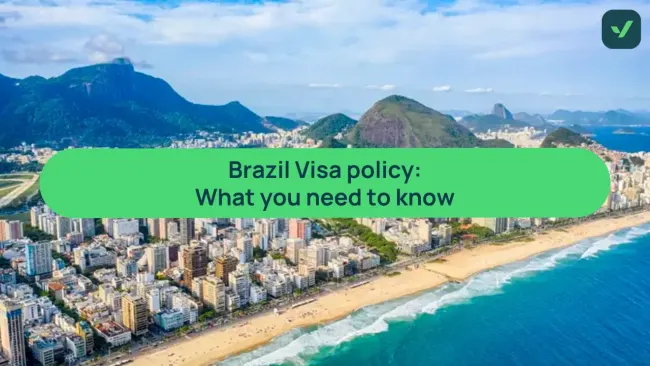
Brazil
Welcome to Brazil
Traveling to Brazil? You may need a visa – find out if you do, which type, and how to apply so you can get the paperwork out of the way and focus on your trip.

What’s a Brazil Visitor Visa and who’s it for?
Who’s the Brazil Visitor Visa for?
The Visitor Visa is a required document for many foreign travelers to Brazil. Check if you require one here.
Who isn't eligible for the Brazil Visitor Visa?
-
Those who are visa-exempt.
-
From April 2024, visitors from the United States, Canada, and Australia must apply for the Brazil eVisa instead.
What’s the purpose of a Brazil Visitor Visa?
Tourism, attending events, short-stay study or internships, journalistic activities, volunteering, and visiting friends and family.
How long can you stay with a Brazil Visitor Visa? It’s usually a multiple-entry visa, and the validity and max. allowed stay depends on your nationality.
Learn more about the Brazil Visitor Visa
What’s a Brazil eVisa and who’s it for?
Who’s the Brazil eVisa for?
The eVisa is available from April 2024 for visitors from the United States, Canada, and Australia.
Who isn’t eligible for the Brazil eVisa?
-
Those who hold a passport from any of the visa-exempt countries. Check your visa requirements through our handy tool.
-
Those who need a Visitor Visa before they arrive in Brazil.
What’s the purpose of a Brazil eVisa? Tourism, transit, or business.
How long can you stay with a Brazilian eVisa? Depending on your nationality, this visa is valid for 5 to 10 years from the day your visa is issued. Your stay in Brazil is limited to a maximum of 90 days per year.
Learn more about the Brazil eVisa
What are Brazil's long-term visa options?

Brazil offers several long-term visa options for various purposes, such as residence. Here are some of the common long-term visas:
-
Humanitarian Visa: Granted to nationals or stateless residents from countries experiencing instability, conflict, or human rights violations, such as Afghanistan, Syria, and Ukraine.
-
Working Holiday Visa: Available under international agreements with Australia, France, Germany, and New Zealand, for travelers aged 18-30.
-
Investment Visa: Provides permanent or initial four-year residency, based on investment type.
-
Family Reunification Visa: For relatives of Brazilian citizens or residents. Grants initial residency matching the family member's period.
-
International Agreements Visa: Offers initial two-year residency (Mercosur agreement), with an option for permanent residency.
-
Retirement or Digital Nomad Visa: For retirees or digital nomads meeting specific income requirements.
-
Medical Training Visa: For medical doctors from countries with high doctor-to-population ratios, assigned to work in areas with low doctor numbers in Brazil.
At iVisa, we currently don’t offer these visas, but you can find out more on the Brazilian government website.
Staying healthy in Brazil: Here’s what you need to know
Healthcare facilities in the country vary significantly in terms of quality and availability. Here's what travelers should know.
Make sure to stay updated on routine vaccines
-
Hepatitis A, typhoid, tetanus, diphtheria, and polio vaccines are recommended to all travelers to Brazil.
-
Keep updated with Brazil's COVID-19 requirements, such as quarantine, testing, or vaccine certificates, through your airline or the Brazil government website.
Medical facilities
-
In major cities like São Paulo, Rio de Janeiro, and Brasília, healthcare facilities are generally well-equipped and offer high-quality services. Public and private clinics are available.
-
In remote regions, healthcare facilities can be limited, and complex treatments might require transportation to a major city.
-
It’s advisable to carry a prescription for any specialized medication you might need during your stay.
Health insurance
We’d always recommend taking out health insurance before you travel anywhere from any destination. Contact your insurance provider before traveling to make sure you have the right level of coverage.
Other things to consider:
-
Trip cancellation, delay, and interruption benefits.
-
Medical expenses and medical evacuation benefits.
-
Baggage coverage.
Things to be aware of when visiting Brazil
Keep an extra eye on the following to keep healthy and safe during your trip to Brazil:
1. Mosquitos: Dengue, Zika, yellow fever, and chikungunya are prevalent in certain areas, especially the Amazon. Preventive measures include vaccination, taking preventative medication, using mosquito repellents, and wearing protective clothing.
2. Water and food safety: Travelers should be cautious about water and food safety to avoid illnesses. It's advisable to drink bottled or purified water and be cautious with street food.
3. Air quality: In some large cities like São Paulo, air pollution can aggravate respiratory conditions.
Medication for personal use
Follow these tips to bring into Brazil some over-the-counter medicines:
-
Declare all medications: Report all medication for personal use to customs authorities.
-
Original packaging: Always keep medicines in their original containers and in transparent bags in your hand luggage.
-
Prescription or doctor's letter: Present the medical prescription issued by your doctor or other competent authority in English.
-
Check for restrictions: Call Brazil's embassy to verify that all of your prescriptions are legal to bring with you.
-
Quantity aligned with itinerary: Bring only a reasonable quantity that aligns with the duration of your stay to avoid complications.


 Australia ETA Online
Australia ETA Online
 United Kingdom ETA
United Kingdom ETA
 India Tourist eVisa
India Tourist eVisa
 Canada ETA Visa
Canada ETA Visa
 Turkey eVisa
Turkey eVisa
 Egypt eVisa
Egypt eVisa
 Singapore SG Arrival Card
Singapore SG Arrival Card
 Indonesia eVoa Visa
Indonesia eVoa Visa
 Aruba ED Card
Aruba ED Card


